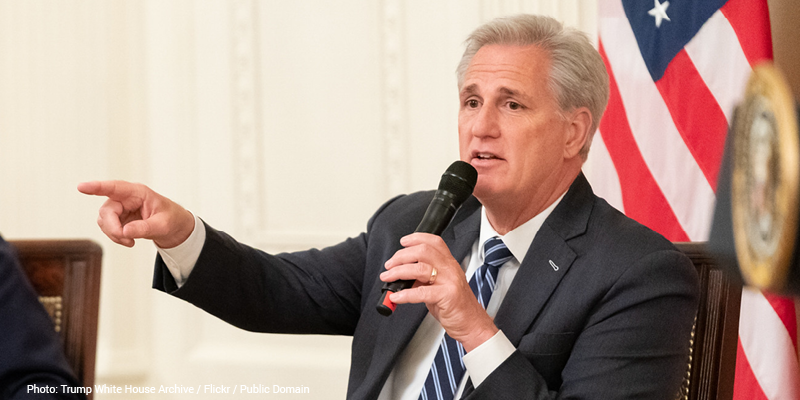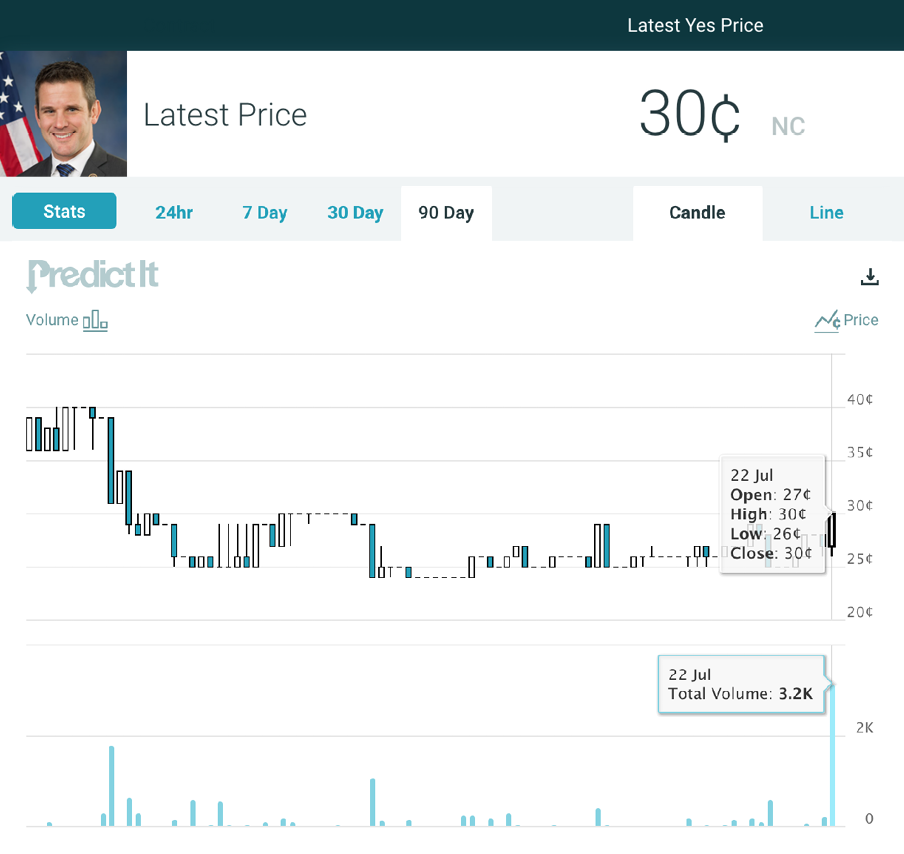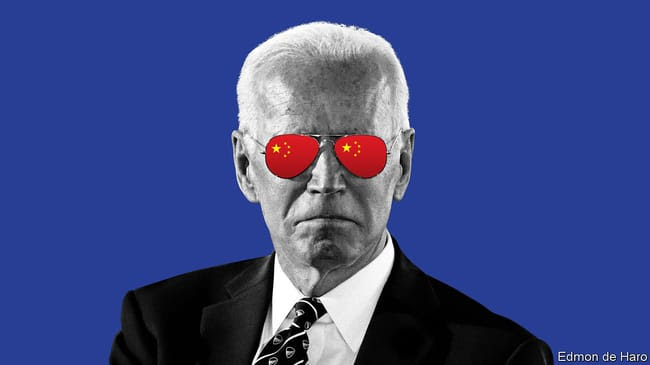|
|
|
Republican Caucus Officially Withdraws from Jan. 6 Select Committee It’s once again time for what has become a weekly update on the House Select Committee tasked with investigating the events surrounding the Jan. 6 riot at the Capitol, which has yet again been the cause of some drama this week on Capitol Hill. The parameters of the committee state that House Speaker Nancy Pelosi (D-CA) would appoint eight members of her choosing and the House Minority Leader Kevin McCarthy (R-CA) would be permitted to appoint five members – giving Pelosi the ultimate power to accept or veto members. On Wednesday, the Democratic leader flexed her veto power when she announced that she would not permit two of McCarthy’s picks – Reps. Jim Banks (R-IN) and Jim Jordan (R-OH) – to sit on the committee. There had been speculation for weeks over whether McCarthy would even appoint his own slate of members or if he would choose to sit out of the process entirely. And, if he did participate, would he pick more moderate members or staunch supporters of former President Donald Trump to ensure that he had allies sitting on the committee? In the end, McCarthy chose a mix. |
|
|
|
But, in response to Pelosi’s vetoes, McCarthy met privately with all five of his nominees and left the meeting with the decision that the Republican caucus would withdraw their participation altogether unless Pelosi reversed her decision on Banks and Jordan. |
|
“Unless Speaker Pelosi reverses course and seats all five Republican nominees, Republicans will not be party to their sham process and will instead pursue our own investigation of the facts,” – McCarthy said in a statement. |
|
|
Unsurprisingly, Pelosi gave no indication that she would change her mind. In fact, she reiterated at a press conference Thursday morning that she would not let the “antics” of the Republican party “stand in the way” of the investigation and said that the two lawmakers she rejected would “impact the integrity of the committee.” She added that statements and actions from Banks and Jordan “make it impossible for them to exercise judgement.” Banks and Jordan are two of the most prominent, outspoken supporters of former President Donald Trump in the House, and both voted against certifying the election results on Jan. 6. McCarthy had also picked Reps. Rodney Davis (R-IL), Kelly Armstrong (R-ND), both of whom are seen as relative moderates in the GOP caucus, and Rep. Troy Nehls (R-TX), a freshman who also voted against certifying the election results. The dramatic back-and-forth – extraordinary even by current measures of partisan hostility – highlighted the level of resentment and distrust that persist between party leaders on Capitol Hill. |
|
|
|
Pelosi’s previous eight committee appointments, including seven Democrats and one Republican, have already started their work and have their fist hearing scheduled for next week where members of Capitol Police who defended the Capitol on Jan. 6 are expected to make appearances. The lone Republican, Rep. Liz Cheney (R-WY), was selected by Pelosi and publicly supported the Speaker’s decision to veto Banks and Jordan – further angering members of her party who see her participation at the request of the Democrats as (yet another) act of disloyalty. Cheney has been one of the most outspoken critics of Trump’s actions since his ouster from office in last November’s election, and was removed from her leadership position as House Republican Chair earlier this year. |
|
|
|
The Republicans’ decision to withdraw all five appointments leave open the possibility that Pelosi herself could fill more of the 13 seats on the panel, a move that she said she was considering Thursday. Rep. Adam Kinzinger (R-IL), another outspoken Trump critic, has been floated repeatedly as a potential, and Rep. Denver Riggleman (R-VA) has been talked about as an advisor and staff member on the Republican side. Their possible participation is seen as an effort to blunt criticism against Pelosi’s vetoes and allows Democrats to call the panel bipartisan regardless of McCarthy’s participation. Notably, both lawmakers, especially Kinzinger, have been outspoken in their criticism of the former president who will be at the center of the panel’s investigation. |
|
|
|
Rank-and-file Democrats supported Pelosi’s decision: |
|
“I think as tough as the decision is – and I’m sure she’ll face a lot of criticism for it – I’d rather take that now than subject what should be an honest analysis of what took place to becoming a ‘Gong Show.’ And that’s what it would be,” said Rep. Dan Kildee (R-MI). |
|
|
McCarthy and other Republicans shared a decidedly different view, accusing the Speaker of setting a dangerous precedent of encroaching on the rights of the minority party to decide its own roster. |
|
“It’s an egregious use of power. It is undeniable that this panel has lost all legitimacy and credibility,” said McCarthy. |
|
|
Most Republicans had opposed the creation of the select committee last month, criticizing Democrats for limiting the scope of the probe to the events of Jan. 6 and not including other episodes of political violence, including riots that accompanied some of last summer’s Black Lives Matter protests and the April 2 killing of Capitol Police officer Billy Evans, who was struck by a car when a motorist rammed a police barricade. They also want any investigation into Jan. 6 to include a thorough accounting of what Pelosi knew about the threat that day. As speaker, Pelosi is in charge of the Capitol Police. |
|
I don’t think they’re going to address the fundamental question…of why wasn’t there a proper security presence at the Capitol that day. And only one person can answer that question – only one,” said Rep. Jim Jordan (R-OH). |
|
|
|
|
Democrats aren’t buying Republican complaints about the select panel, seeing it as a last resort after Senate Republicans filibustered legislation to establish a 9/11-style commission to investigate Jan. 6, which would have allowed for much better terms for Republican participation. Democrats then went ahead with a select committee option, garnering support from only two Republicans – Cheney and Kinzinger. Market Pulse: The contract tracking if Rep. Jim Jordan (R-OH) would be appointed to the Jan. 6 Select Committee predictably showed a steep spike and crash this week following the unfolding drama. With a previous high of 41¢ on July 2, Jordan’s odds sat at 28¢ as of closing on Sunday, shot up to 80¢ through Monday and dropped down to 1¢ with Pelosi’s veto on Wednesday. Pricing had been mostly in the 20¢-30¢ range throughout July, reflecting the uncertainty traders had about what direction McCarthy would end up going. |
|












































